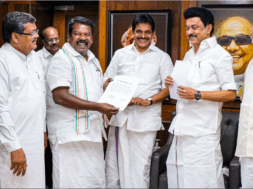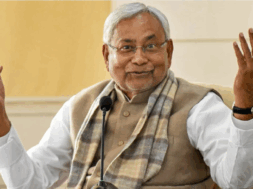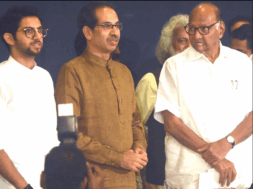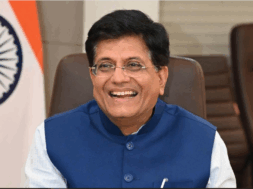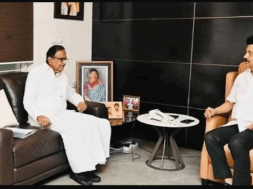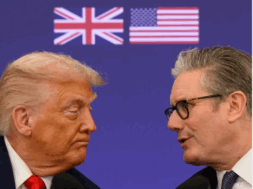
Technology: Google’s Indian app delisting cannot be permitted, says Vaishnaw
Virendra Pandit
New Delhi: Asserting that the startup ecosystem is key to the rising Indian economy and its fate cannot be left to any technology giant to decide, Union Minister for Information Technology Ashwini Vaishnav on Saturday said Google’s move to delist some Indian apps cannot be permitted.
Taking a strong view of Google pulling off these apps from its Play Store, he said the search engine giant and the startups concerned have been called for a meeting next week, the media reported.
Google on Friday began removing some apps, including popular matrimony apps, from its Play Store in India over a dispute on service fee payments, even as apps and well-known startup founders cried foul.
“India is very clear, our policy is very clear…our startups will get the protection that they need,” the minister said, adding the government will meet Google and the affected app developers next week to resolve the dispute.
“This kind of delisting cannot be permitted,” Vaishnaw asserted.
India has built a strong startup ecosystem of over one lakh startups, and more than 100 unicorns from scratch in a matter of just10 years, the minister said, adding the energy of youth and entrepreneurs must be channelized fully and “cannot be left to the policies of any big tech.”
“I will be telling Google…Our entrepreneurial energy…startups, look at the whole startup India program. Ten years back we had practically nothing and today we have more than 100,000 startups and over 100 unicorns. The energy of our youth, entrepreneurs, and talented people should be channeled. It cannot be left to the policies of any big tech,” Vaishnaw reiterated.
On Friday, Google claimed that 10 Indian companies, including “many well-established” ones, had avoided paying fees despite benefiting from the platform and Play Store, and proceeded to delist some of their apps.
It did not name the firms but a search of Play Store on Android phones did not yield results for matrimonial apps such as Shaadi, Matrimony.com, and Bharat Matrimony. Balaji Telefilms’ Altt (formerly ALTBalaji), audio platform Kuku FM, dating service Quack Quack, and Truly Madly also disappeared from the Play Store.
The raging dispute is over Google imposing a hefty fee of 11 to 26 percent on in-app payments after anti-competition body Competition Commission of India (CCI) ordered the tech giant to scrap an earlier system of charging 15 to 30 percent fee.
When the Supreme Court did not provide interim relief to the app developers in their battle against the search giant’s app marketplace fees, Google removed the apps not paying the fee.
While Bharat Matrimony founder Murugavel Janakiraman described the move as a “dark day” for the Internet in India, Kuku FM Co-founder Vinod Kumar Meena said that Google was behaving like a ‘monopolist.’ Quack Quack Founder Ravi Mittal, however, said his firm would comply with rules to get back in the marketplace.
Earlier, Google sent notices of Play Store ‘violations’ to Matrimony.com, which runs the app BharatMatrimony, and Info Edge, which runs Jeevansathi.
Info Edge (India) Ltd on Saturday said its mobile apps, including naukri.com, 99 acres.com, and shiksha.com have also been removed from Google Play Store.
“Indian companies will comply – for now. But what India needs is an App Store/ Play Store that is a part of Digital Public Infrastructure – like UPI and ONDC. The response needs to be strategic,” Info Edge founder Sanjeev Bikhchandani said in a post on Friday on X (formerly Twitter), tagging Union Commerce and Industry Minister Piyush Goyal and his office.
Google said 10 Indian companies had failed to pay for the “immense value they receive on Google Play.”
“For years, no court or regulator has denied Google Play’s right to charge,” it said, adding that the Supreme Court on February 9 also “refused to interfere” with its right to do so.
Google asserted that allowing a small group of developers to get differential treatment from the vast majority of developers who are paying their fair share creates an uneven playing field putting all other apps and games at a competitive disadvantage.
“After giving these developers more than three years to prepare, including three weeks after the Supreme Court’s order, we are taking necessary steps to ensure our policies are applied consistently across the ecosystem, as we do for any form of policy violation globally,” Google said.
In a blog post, Google said that enforcement of the policy, when necessary, can include removal of non-compliant apps from Google Play. It, however, added that existing users will be able to continue to access the apps without interruption and that it continues “to offer our support to help developers get into compliance.”
Developers, it said, are welcome to resubmit their apps to be listed on Play by selecting one of the three billing options as part of its payment policy.
“Today, we have over 200,000 Indian developers using Google Play who adhere to our policies, helping us ensure we have a safe platform; however, for an extended period, 10 companies, including many well-established ones, have chosen to not pay for the immense value they receive on Google Play by securing interim protections from the court,” Google added.

